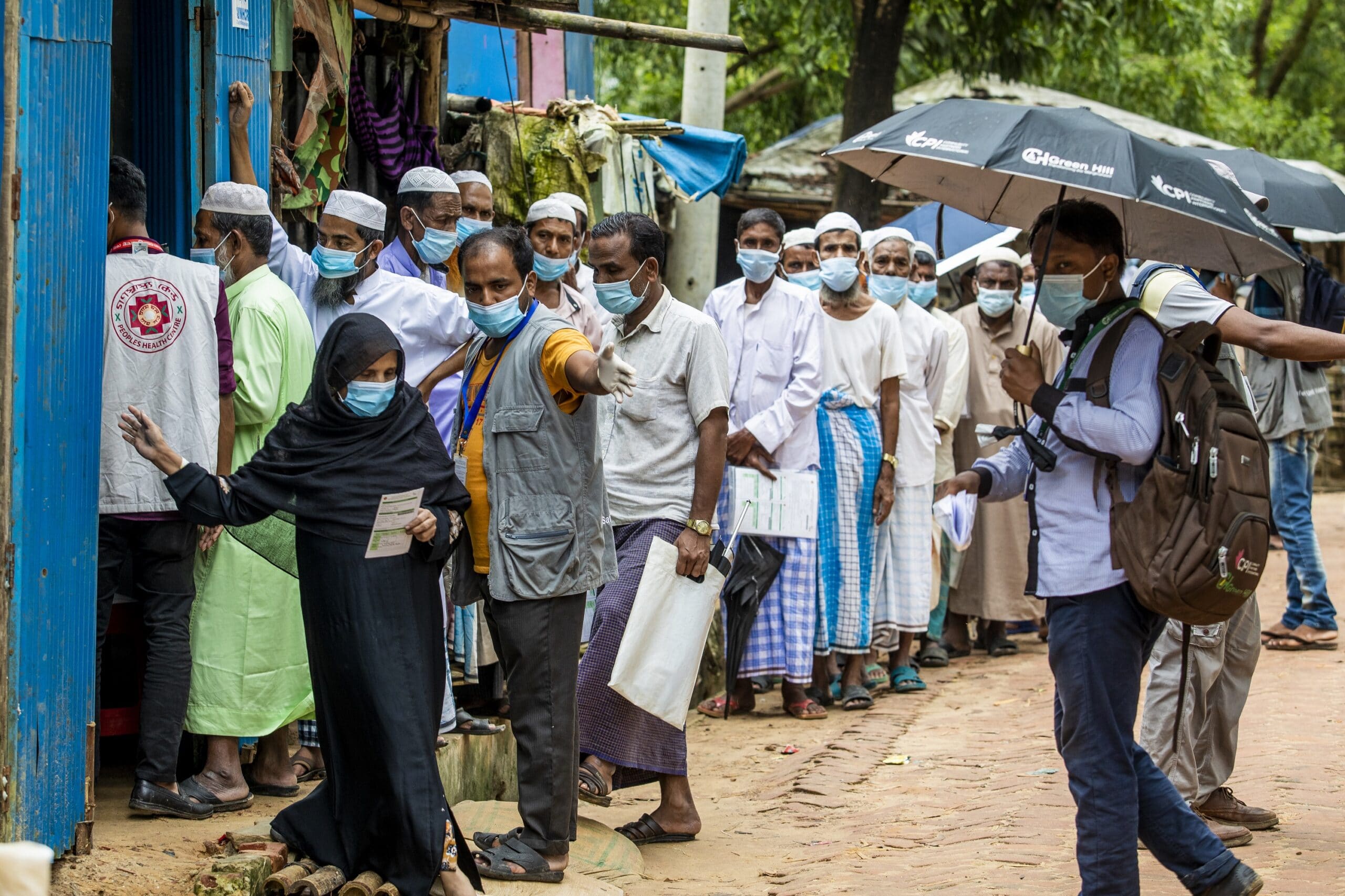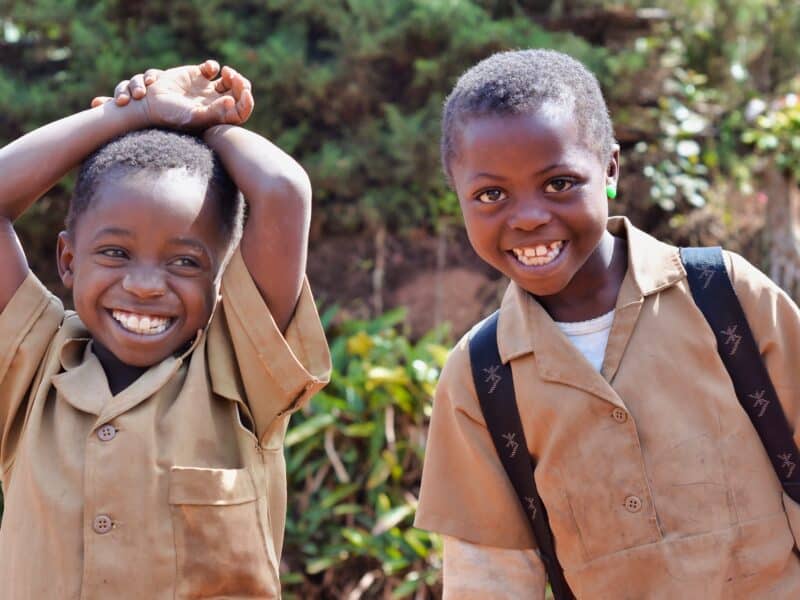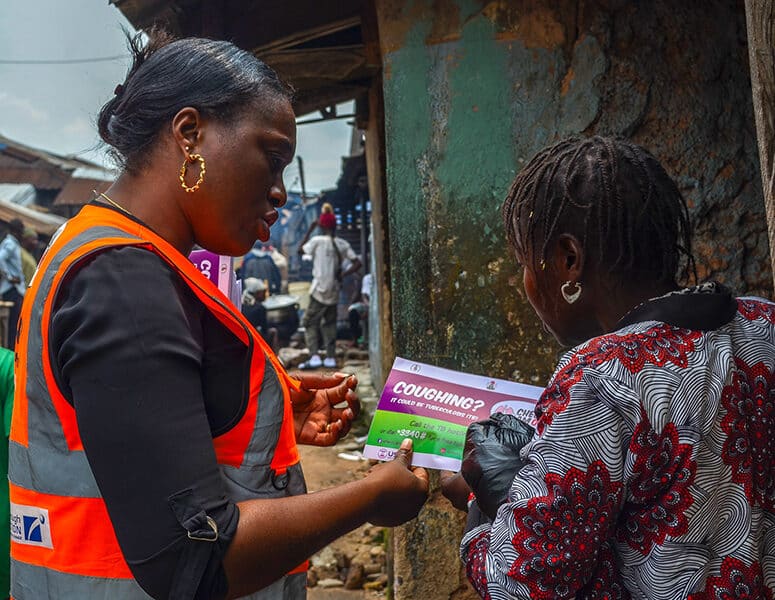In Bangladesh, in order to be vaccinated against COVID-19, you must present a vaccination card – something that is easy to get if you are technologically savvy, over the age of 18 and have a national identity card.
But large swaths of people – from schoolchildren to street hawkers to sex workers – don’t have a national identity card because they’re too young to qualify or lack access to computers or basic literacy to procure a vaccination card. The Johns Hopkins Center for Communication Programs-led Breakthrough ACTION project worked with government ministries in Bangladesh to help overcome these obstacles and increase vaccination rates in a country where 53 percent are fully vaccinated.
To boost vaccination rates among the vulnerable in Bangladesh, these so-called floating people were targeted because they often have a more difficult time than others in getting health services due to the transitory nature of their lives. On Feb. 26, the government held a nationwide mass vaccination campaign to reach those people and millions more with a first dose. The project was so successful that the government turned a one-day event into three.
“The thing about floating people is they have always been deprived of basic human rights,” says CCP’s Rakhshindah Akhtar, a program associate in Bangladesh. “COVID has been worsening in those populations. Our work has not only encouraged more people to be vaccinated but has helped with the logistics of accessing vaccines.”
Public health officials say increasing COVID-19 vaccination can help bring the pandemic, in its third year, to an end. So far COVID-19 has killed more than 29,000 in Bangladesh and sickened more than 1.9 people, though actual numbers are likely much higher.
For the government’s big vaccination day, approximately 30,000 temporary vaccination booths were set up across the country of 167 million people. Anyone who wanted a shot could register on the spot. Breakthrough ACTION provided logistical support to Expanded Program for Immunization of Directorate General of Health Services in Bangladesh by equipping the booths and other vaccination centers with 2.5 million vaccination cards nationwide. The project also disseminated information about the mass vaccination campaign through community and national radio partners.
So successful was the mass vaccination campaign in February that the government has scheduled another such campaign from March 28 to 30. This time, people can receive a second dose of vaccine.
CCP’s Tajkera Noor, a program officer in Bangladesh, visited one of the centers on Feb. 26 and encountered crowds of people eager to get vaccinated. People had heard about the event on the radio as well as at mosques and fairs. The center even ran out of doses at one point, but it was quickly restocked. One girl, a student in a madrassa, told her that she thought the vaccination wasn’t for people like her. She was pleasantly surprised when she got a dose for herself.
In another effort, CCP helped the government spread the news that schoolchildren ages 12-17 could access vaccines. For the first 18 months of the pandemic, schools throughout Bangladesh were closed. When they finally reopened in September, the government realized the importance of vaccinating students and soon began a campaign to provide them with their doses.
The school vaccination campaign addressed two main challenges: vaccine hesitancy among students and parents, and students’ inability to register for vaccination online due to their age. In Bangladesh, there are two ways to register for a COVID-19 vaccine: through the Surokkha app or on the website. Both processes require people to enter a national identity number (NID), which is only issued to those who are 18 years and older, thus restricting younger students’ ability to register for the vaccine.
After discussions with the government and at their request, CCP developed and printed 7.5 million Pfizer vaccine cards ensuring that students could receive vaccination without registering online or through the app.
Breakthrough ACTION produced messages depicting interviews with students and teachers who were excited to be able to return to school and see all their friends after the long absence. The messages emphasized the importance of taking vaccines to create a safe environment on campuses, and the need to follow health and hygiene rules even after vaccination. The videos were disseminated on the government’s a2i digital platform and additional positive stories were featured on government Facebook pages. Breakthrough ACTION provided information on the registration process for children and adolescents through community and national radio stations.
“Our work increased positive attitudes towards vaccination, increased awareness and created safer schools,” says CCP’s Kazi Faisal Mahmud, MBBS, MPH, who leads the center’s work in Bangladesh. “Students without internet access and from remote, hard-to-reach areas have used the cards to receive a vaccination they might not otherwise been able to get. And, anecdotally, the radio programs appear to have helped students overcome their vaccine hesitancy.”





